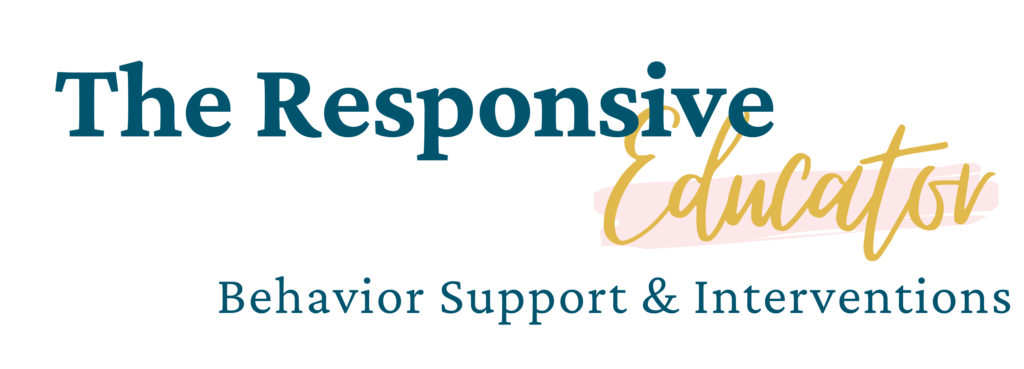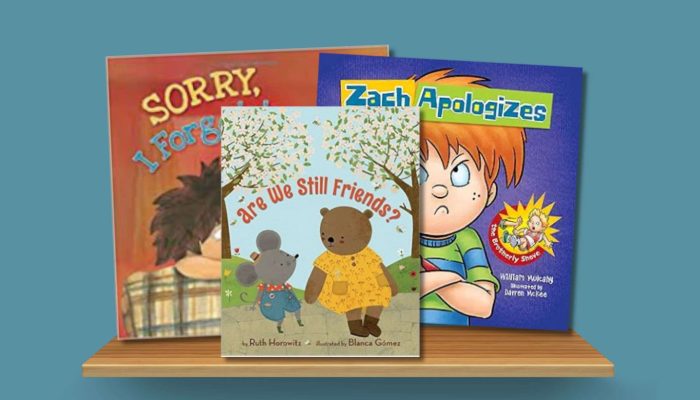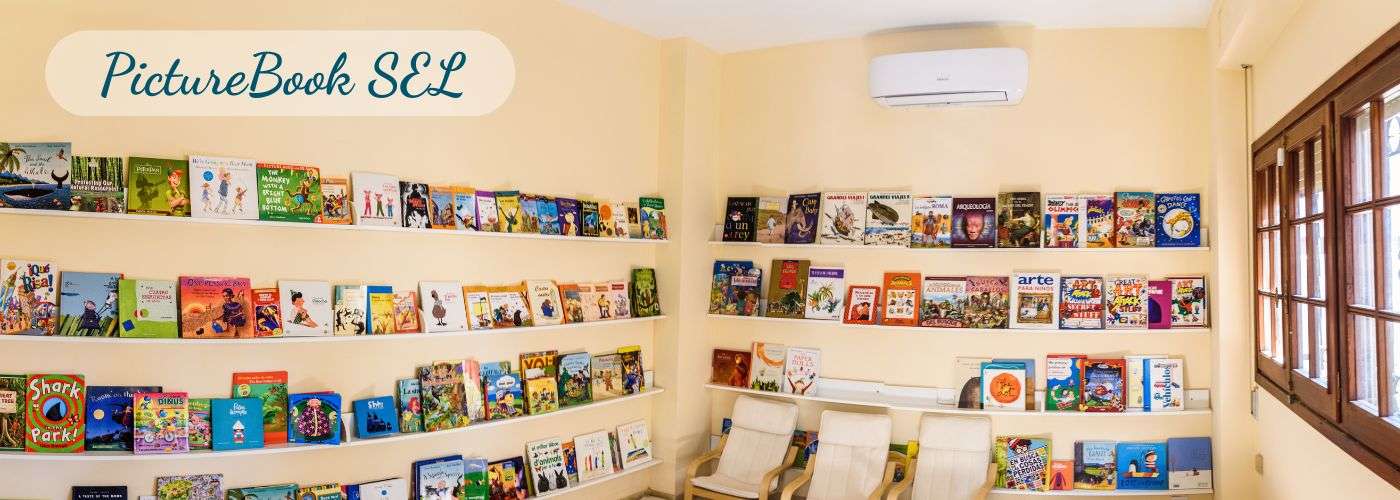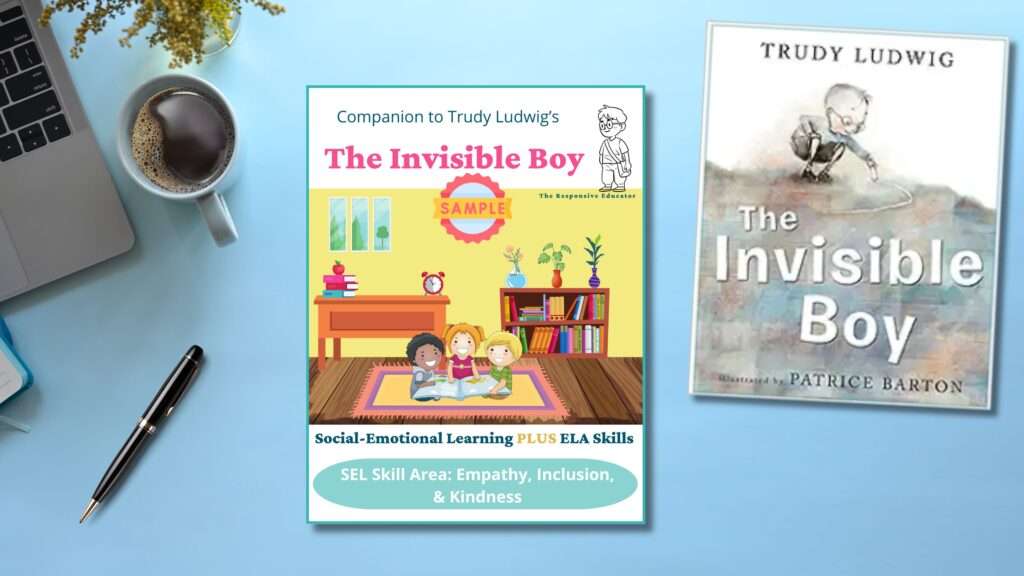


Teaching children how to apologize is an essential part of their social-emotional development. Picture books can be a great way to introduce this skill, offering relatable characters and meaningful stories that guide children through the process. In this post, we’ve gathered a selection of books that are perfect for helping teach kids how to apologize, with options for both early and later elementary students.
For younger children in early elementary, the focus is on introducing the concept of apologizing. These books help kids understand when and why saying “I’m sorry” is important. For mid to older elementary students, the stories become more complex, addressing the idea that a true apology goes beyond just saying the words—it involves understanding how actions impact others and taking steps to make amends.
Whether you’re working with younger children learning the basics or older students ready to explore deeper concepts of responsibility and sincerity, these books offer valuable lessons for all stages of development.
For some of the books on this site, I’ve created interactive read-alouds designed to enrich their use in the classroom. These resources include discussion questions, activities, and prompts that actively engage students and deepen their understanding of key themes. More interactive read-alouds are on the way! If there’s a specific book you’d like to see included, please reach out using the contact form at the bottom of the page.
For more insights on supporting social-emotional learning (SEL) and incorporating interactive read-alouds into your teaching, explore these posts:
(As an Amazon affiliate, I earn a small commission if you purchase products through the links on my posts. Thank you for your support!)
Summary: Benjamin Bear Says Sorry follows the story of Benjamin, a well-meaning bear who finds himself making a few mistakes while playing with his friends. As he realizes that his actions have hurt others, Benjamin learns the importance of saying “sorry” and making things right. Through his journey, young readers see how apologizing can repair relationships and show others that you care about their feelings.
Description: Benjamin Bear Says Sorry by Claire Freedman is a sweet and gentle story that teaches children the value of apologizing when they’ve made a mistake. The book is ideal for younger children who are learning about social interactions, as it offers clear examples of how to recognize when an apology is needed and how to give one sincerely. Benjamin’s relatable experiences allow children to connect with his character and understand the emotional impact of both making mistakes and saying sorry.
The charming illustrations by Steve Smallman add warmth to the story, making it engaging for young readers. This book is a great resource for introducing important social-emotional skills such as empathy, taking responsibility for one’s actions, and the power of a heartfelt apology.
Reviews and Considerations:
Benjamin Bear Says Sorry is appreciated by parents and educators for its approachable way of teaching children about responsibility and empathy. The book’s simple language and endearing character make it suitable for early elementary readers or younger children. Readers note that the story encourages children to take accountability for their actions and understand how apologies can heal hurt feelings.
This book is particularly useful for starting conversations with children about the importance of recognizing when they’ve wronged someone and how to sincerely apologize, making it a helpful tool for building social-emotional awareness in young children.

Summary: I’m Sorry is a touching story about two friends, a little fox and a little rabbit, who have a disagreement. After some time apart, they both feel upset and miss each other. The story focuses on the importance of apologizing and how a simple “I’m sorry” can help repair friendships and make things right again. Through gentle dialogue, the characters show that saying sorry is a meaningful way to heal hurt feelings and move forward together.
Description: I’m Sorry by Sam McBratney is a beautifully illustrated and heartfelt story about friendship, forgiveness, and the power of a sincere apology. The book follows two friends who, after having a falling out, realize how much they value their friendship and how important it is to make amends. The story’s emphasis on empathy and reconciliation helps young readers understand that conflicts are a normal part of relationships but that they can be resolved with kindness and a genuine apology.
The illustrations by Jennifer Eachus enhance the emotional depth of the story, bringing the characters’ feelings to life. The simple, yet powerful narrative makes this book an excellent resource for teaching children about empathy, conflict resolution, and the value of saying “I’m sorry” when they’ve hurt someone.
Reviews and Considerations: I’m Sorry is praised for its gentle approach to teaching children the importance of apologizing and mending relationships. Parents and educators find the story relatable for young children, as it highlights common conflicts that occur between friends and how those conflicts can be resolved through communication and forgiveness.
This book is ideal for early elementary readers, particularly those learning about friendship dynamics, apologies, and empathy. The story provides a valuable opportunity for discussions about emotions and how to handle conflicts in a caring and thoughtful way, making it a great addition to social-emotional learning in the classroom or at home.

Summary: I’m Sorry is a heartwarming story about two best friends, Scribble and Swoop, who find themselves in a disagreement that leads to hurt feelings. As both characters try to navigate their emotions, they learn the power of a sincere apology in mending friendships. The story demonstrates that while everyone makes mistakes, saying “I’m sorry” and making amends can bring friends closer together.
Description: I’m Sorry by Barry Timms is a beautifully crafted picture book that teaches children the value of apologizing and repairing relationships. Scribble and Swoop, a mouse and an owl, have a special friendship, but after a misunderstanding, they become distant. Through engaging dialogue and relatable emotions, the story shows children that it’s normal to have disagreements, but it’s important to apologize and show empathy when someone has been hurt.
The expressive illustrations by Sean Julian capture the emotional journey of both characters, making the message of forgiveness and reconciliation even more impactful for young readers. The book’s simple language and warm tone make it ideal for teaching young children about handling conflicts, taking responsibility, and offering sincere apologies.
Reviews and Considerations: I’m Sorry is praised for its gentle and relatable approach to helping children understand the importance of saying sorry. Parents, teachers, and caregivers appreciate how the book highlights common friendship challenges and encourages children to think about the feelings of others. The relatable characters and heartfelt message make the story a wonderful tool for teaching empathy, forgiveness, and the power of making things right.
This book is particularly suited for early elementary readers who are learning about friendships, conflict resolution, and emotional regulation. Its themes of empathy and understanding provide valuable lessons in social-emotional development, making it an excellent resource for both classroom and home use.

Summary: Punk the Skunk Learns to Say Sorry tells the story of Punk, a playful skunk who loves making jokes, but sometimes his teasing goes too far and hurts his friends’ feelings. When his friends get upset, Punk doesn’t understand why until he learns the importance of apologizing. Through his journey, Punk discovers that saying sorry isn’t just about words—it’s about making things right and showing you care.
Description: Punk the Skunk Learns to Say Sorry by Misty Black is a fun and relatable story that teaches children the value of apologies and understanding the impact of their actions on others. Punk, the main character, enjoys teasing and playing pranks, but when his friends start to get hurt, he realizes that his behavior has consequences. The book highlights that apologizing isn’t just about saying the words but about being sincere and taking responsibility for your actions.
The colorful illustrations by Ana Rankovic bring the characters and story to life, making it engaging and accessible for young readers. Through Punk’s journey, children learn about empathy, forgiveness, and how to make amends when they’ve hurt someone. This story encourages open conversations about how our words and actions affect others and how saying sorry can heal relationships.
Reviews and Considerations: Punk the Skunk Learns to Say Sorry is highly praised for its humorous and approachable way of teaching children about the importance of apologies. Parents and educators appreciate how the book uses a fun character like Punk to illustrate how teasing can hurt others and why it’s important to make amends. The story encourages children to reflect on their actions and understand the value of a sincere apology.
This book is well-suited for early elementary readers who are developing their social-emotional skills, particularly around empathy and conflict resolution. The story offers an excellent opportunity for discussions about kindness, responsibility, and how to repair relationships through thoughtful actions and words.

Summary: Zach Apologizes follows the story of a young boy named Zach, who learns an important lesson about how to apologize properly when he makes mistakes. After hurting someone’s feelings or causing trouble, Zach’s parents introduce him to the “Four-Square Apology” method, a simple step-by-step guide to making a sincere and meaningful apology. Throughout the story, Zach learns that apologizing is not just about saying “sorry” but about understanding how his actions affect others and making things right.
Description: Zach Apologizes by William Mulcahy is a valuable resource for teaching children how to apologize in a sincere and thoughtful way. The book introduces the “Four-Square Apology” method, which helps children break down the process of apologizing into manageable steps: saying sorry, acknowledging what they did wrong, expressing empathy, and offering to make amends. Through Zach’s journey, children learn that apologies are not just words—they are a way to repair relationships and show others that they care.
The illustrations by Darren McKee bring the story to life with bright, expressive characters, making the lesson both engaging and relatable for young readers. Zach Apologizes provides practical tools for children to understand the importance of taking responsibility for their actions and being mindful of others’ feelings.
Reviews and Considerations: Zach Apologizes is praised by parents, teachers, and counselors for its clear and actionable approach to teaching children how to make a proper apology. The “Four-Square Apology” method is particularly appreciated for providing children with a concrete framework to follow, making it easier for them to understand the emotional and social aspects of saying sorry.
This book is especially helpful for early elementary readers who are just learning about the importance of apologies and conflict resolution. Its step-by-step approach encourages reflection and fosters social-emotional growth, making it a great addition to classrooms and homes as a tool for teaching responsibility, empathy, and relationship-building.



Summary: Are We Still Friends? tells the story of Beatrice, a beekeeper, and Abel, an apple farmer, who are the best of friends. They gather honey in summer and harvest apples in fall, making a perfect pair. But when Abel accidentally startles a bee and gets stung, his reaction leads to a misunderstanding when Beatrice laughs. Hurt feelings escalate into a quarrel, testing their friendship. The book explores how small conflicts can grow if left unresolved, but also highlights the strength of friendship when apologies are made, and teamwork prevails.
Description: Are We Still Friends? by Ruth Horowitz is a charming story that weaves together themes of friendship, nature, and the art of apology. Beatrice, who raises bees, and Abel, who grows apples, are inseparable friends who complement each other perfectly throughout the seasons. But when a bee sting causes a misunderstanding between the two, their long-standing friendship is put to the test. The book explores how small conflicts can grow if left unresolved but also highlights the strength of friendship when apologies are made, and teamwork prevails.
The illustrations by Blanca Gómez capture the beauty of nature and the emotional journey of the characters, bringing warmth and depth to the story. This book is an excellent resource for teaching children about resolving conflicts, understanding others’ perspectives, and the importance of saying “I’m sorry.” It also introduces young readers to the interconnectedness of nature, making it a celebration of both friendship and ecology.
Reviews and Considerations: Are We Still Friends? is highly praised for its relatable portrayal of friendship challenges and the valuable life lesson that saying “sorry” can mend misunderstandings. Parents, teachers, and caregivers appreciate the way the book combines themes of conflict resolution, teamwork, and the harmony found in nature.
This book is perfect for early elementary readers who are learning about the complexities of friendship and how to navigate disagreements. It provides a meaningful opportunity to discuss empathy, communication, and the power of forgiveness in maintaining strong relationships. Additionally, the book’s ecological theme ties nature and friendship together, making it a great tool for teaching children about cooperation both with others and with the environment.

Summary: Lilly’s Purple Plastic Purse tells the story of Lilly, a confident and energetic young mouse who adores her teacher, Mr. Slinger. One day, Lilly brings her shiny new purple plastic purse to school, eager to show it off to her classmates. However, when she disrupts the class with her excitement, Mr. Slinger takes the purse away, causing Lilly to feel hurt and angry. In her frustration, she acts out, but soon realizes the importance of making amends. Through reflection and understanding, Lilly learns a valuable lesson about controlling her emotions, being patient, and the power of a sincere apology.
Description: Lilly’s Purple Plastic Purse by Kevin Henkes is a beloved children’s book that beautifully explores themes of emotional regulation, forgiveness, and the importance of apologizing when mistakes are made. Lilly’s excitement over her new purse gets the better of her, and after her teacher takes it away, her feelings of anger and frustration lead to impulsive actions. But as the story unfolds, Lilly comes to understand the consequences of her behavior and learns the value of forgiveness, both for herself and others.
The book’s charming illustrations, also by Henkes, add depth to the characters and bring Lilly’s emotions to life, making the story relatable for young readers. This book offers important social-emotional lessons about making amends and understanding the perspectives of others, making it a valuable resource for parents, teachers, and caregivers.
Reviews and Considerations: Lilly’s Purple Plastic Purse is widely praised for its realistic portrayal of childhood emotions and the challenges of managing disappointment and frustration. Parents and educators appreciate how the story gently teaches children about patience, self-regulation, and the importance of apologizing after a mistake. Lilly’s relatable emotions and her journey toward understanding make this a great book for sparking conversations about empathy and responsibility.
This book is particularly suited for early elementary readers, providing an engaging narrative that supports emotional development and the importance of making things right when you’ve hurt someone. It’s a perfect tool for teaching children about the consequences of their actions and how to build stronger relationships through understanding and forgiveness.

Summary: Ralph and Rita’s Rotten Day is a humorous and relatable story about two animal friends, Ralph and Rita, who are having one of those days when everything seems to go wrong. What begins as a small misunderstanding quickly turns into a series of escalating conflicts, leaving both friends upset and frustrated. As their day gets worse, Ralph and Rita realize that sometimes disagreements and bad days happen, but with a little understanding, humor, and a sincere apology, things can turn around. By the end of the day, they are reminded that their friendship is strong enough to survive even the rottenness of days.
Description: Ralph and Rita’s Rotten Day by Carmen Agra Deedy is a lighthearted story that explores the ups and downs of friendship and the reality of bad days. Ralph and Rita, two best friends, experience a series of mishaps and misunderstandings that cause their day to spiral into frustration. Through their comical exchanges and emotional ups and downs, the book teaches children that disagreements and bad days are a normal part of life, but what matters most is how we resolve those conflicts and apologize when we’ve been wrong.
The lively illustrations by Michael Austin capture the emotional dynamics between the characters, bringing the story’s humor and warmth to life. The book provides a great opportunity for children to reflect on their own experiences with friends, especially how to manage disagreements and move forward from a “rotten day.”
Reviews and Considerations: Ralph and Rita’s Rotten Day is praised for its fun and engaging approach to handling conflict between friends. Parents and educators appreciate how the story humorously portrays common friendship challenges while offering an important lesson on forgiveness, patience, and resilience. The dynamic between Ralph and Rita offers a realistic glimpse into how small conflicts can escalate but also how they can be resolved with a bit of reflection and an apology.
This book is perfect for early elementary readers, helping them understand that bad days and disagreements are natural, but friendships can grow stronger through communication, empathy, and the willingness to say “I’m sorry.” The story encourages children to find humor in challenging situations and teaches them how to move forward from difficult moments.

Summary: Sorry (Really Sorry!) is a playful yet meaningful story about Cow, who is in a grumpy mood and takes it out on her friends with unkind words. As her bad mood spreads to the other animals, they too become upset and grumpy. However, when Cow realizes the negative impact of her actions, she learns the importance of a heartfelt apology and making things right. The story highlights how saying “sorry” and truly meaning it can turn a bad situation around and restore friendships.
Description: Sorry (Really Sorry!) by Joanna Cotler is a vibrant and engaging picture book that explores the ripple effect of negative behavior and the power of a sincere apology. When Cow’s bad mood causes her to lash out at her friends, her actions start a chain reaction, leaving the whole farm feeling grumpy. As Cow reflects on how her behavior has hurt others, she understands the need to say “sorry” and mean it, showing children that a genuine apology can repair relationships and make things better.
The colorful illustrations by Harry Bliss perfectly complement the humorous and heartfelt narrative, capturing the emotional journey of the characters. This book offers a valuable lesson for young readers about taking responsibility for their actions, understanding how their mood can affect others, and how to apologize in a meaningful way.
Reviews and Considerations: Sorry (Really Sorry!) is praised for its relatable depiction of how one bad mood can spread and affect others, making it a useful tool for discussing emotional regulation and the importance of apologies. Parents, teachers, and caregivers appreciate the way the book balances humor with an important message about empathy and the impact of words.
This book is particularly suited for early elementary readers who are learning about the consequences of their actions and how to handle conflicts with friends. The story provides a fun and engaging way to teach children about the importance of apologizing, taking responsibility for their behavior, and how one sincere “sorry” can make a big difference.

Summary: Sorry, I Forgot to Ask! follows RJ, a young boy who often lands in the time-out chair after making decisions without asking for permission. Along with his friend Sam, RJ faces a series of misadventures—from walking home without permission to using his dad’s computer and eating Grandma’s birthday cake. Guided by his father, RJ learns the importance of asking before acting and making sincere apologies when mistakes happen. Through relatable experiences, RJ discovers how taking responsibility and making amends can repair relationships and prevent misunderstandings.
Description: Sorry, I Forgot to Ask! by Julia Cook is a heartwarming and relatable children’s book that teaches essential social skills such as asking for permission and making sincere apologies. RJ’s misadventures with his friend Sam offer children clear examples of what happens when they don’t ask before taking action, emphasizing the importance of responsibility and accountability.
Guided by his father’s advice, RJ learns that while everyone makes mistakes, making amends through an honest apology and asking for permission can help maintain trust and respect in relationships. The vivid illustrations by Kelsey De Weerd bring the story to life, making the lessons more engaging and accessible to young readers.
Reviews and Considerations: Sorry, I Forgot to Ask! is widely praised for its practical approach to teaching children about responsibility, respect, and the power of a sincere apology. Parents, educators, and counselors value how the book uses everyday scenarios to help children navigate social situations and understand the consequences of their actions.
Ideal for early elementary students, this book offers a great resource for teaching children about accountability and fostering open conversations about making the right choices. The story’s clear examples of how to handle mistakes make it a useful tool for encouraging communication and empathy in both the classroom and at home.
Help students understand the importance of apologizing and making respectful choices with the Sorry, I Forgot to Ask! Interactive Read Aloud Lesson Plan Book Companion, ELA, SEL Activities. This 100-page resource features over 30 activities, providing 15-20 hours of engaging lessons that seamlessly integrate social-emotional learning (SEL) and English Language Arts (ELA) skills.
Perfect for whole group, small group, and independent work, this comprehensive resource ensures that students develop essential skills in communication, conflict resolution, and apologizing. The lesson plan includes a variety of discussion questions, activities, and prompts designed to promote self-regulation, responsible decision-making, and understanding the impact of their actions.

Sign up now to receive a free sample of “The Invisible Boy” Interactive Read-Aloud Lesson Plan! This comprehensive resource includes engaging activities designed to help your students develop empathy and inclusion.
By signing up, you will also join our newsletter, where you’ll receive:
Join our community of educators dedicated to fostering social-emotional growth in the classroom!

( ) = Coming Soon
Body Safety & Personal Boundaries
(Conflict Resolution)
(Compromise / Cooperating)
Feelings & Emotional Awareness
(Sensory Processing)
(Sharing)
(Speaking Politely)
(Teasing & Bullying)
(Trauma Recovery)